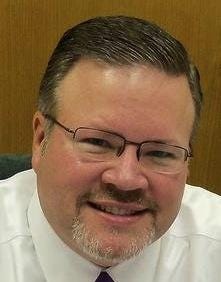
My favorite quote by Martin Luther King Jr. is, “The arc of the moral universe is long, but it bends toward justice.”
Every time racial discrimination and other civil rights violations reappear after the arc of moral justice seemed to have left ignorant ideologies in the past, I try to remind myself that we are still bending toward justice.
There was another arc that captured my attention as I listened to speeches by King that led me to others by Malcolm X. The two men led the civil rights movement in the early 1960s down very different paths. However, both men followed paths that intersected only once and some would argue reversed their roles.
Both men were the sons of Baptist ministers.
King followed his father’s path into the pulpit. Malcolm Little lost his father at a young age and his mother was put into a mental hospital. He was incarcerated on larceny charges and found a purpose with the Nation of Islam while in that jail.
He dropped the name “Little” because he called it the name slaveowners gave his family.
The two men saw the inherent evil in the pervasive racism that still existed 100 years after the Emancipation Proclamation, but they had different ideas on how to increase civil rights for black people in America.
King chose to be a peaceful protester. He saw sit-ins, strikes and marches as the best way to make the case. Malcolm X called King a “20th Century Uncle Tom” and cast aspersions on King’s methods.
A funny thing happened to both along the way. The firehoses, beatings, arrests and slow advancement of his cause caused King to become more heated in his rhetoric as he took on the Vietnam War and other social injustices as the Civil Rights movement grew and changed.
Malcolm X left the hardline Nation of Islam and became far less incendiary in his speech as he continued on his path.
The two only crossed paths once after both attended the Senate debate on the Civil Rights Act of 1964.
Only one photo of the two men together exists. Soon after, both had succumbed to assassins’ bullets.
There are no holidays for Malcolm X. His ideas didn’t inspire a movement like King’s message of using the weapon of love to attack an enemy.
“Darkness cannot drive out darkness; only light can do that,” King said. “Hate cannot drive out hate; only love can do that.”
King’s legacy lives on because he wanted to lift people to equality and not tear the oppressors down.
Because of that legacy, you can visit a monument in his honor in Washington D.C. where one of his biggest marches culminated in one of his most important speeches.
Malcolm X once said, “Be peaceful, be courteous, obey the law, respect everyone; but if someone puts his hand on you, send him to the cemetery.”
That is a great way to inspire action and also cause as many problems as it solves.
In his “I have a dream” speech, King said, “Let us not seek to satisfy our thirst for freedom by drinking from the cup of bitterness and hatred.”
He went on to say that working together was the only way to achieve the goals of the civil rights movement.
“We cannot walk alone,” he said. “And as we walk, we must make the pledge that we shall march ahead. We cannot turn back.”
My favorite thing about the monument in King’s honor in Washington D.C. is that it is unfinished. Surrounded by stones engraved with quotes from King is a likeness of him carved into the Stone of Hope. But it isn’t complete. Like his life that was cut short and the movement he led, it is still unfinished.
We have a holiday celebrating King and the movement he led. It is up to us to finish the work that he began.
Society is better than it was a half century ago when he was killed. It was better then than when black people were treated as property.
But the civil rights movement is far from over. Progress seems slow at times. Sometimes we take steps backward. But King’s words still ring true.
“The arc of moral justice is long, but it bends toward justice.”
Kent Bush is publisher of Shawnee (Oklahoma) News-Star and can be reached at kent.bush@news-star.com.
This article originally appeared on Crestview News Bulletin: It is up to us to finish King’s work
